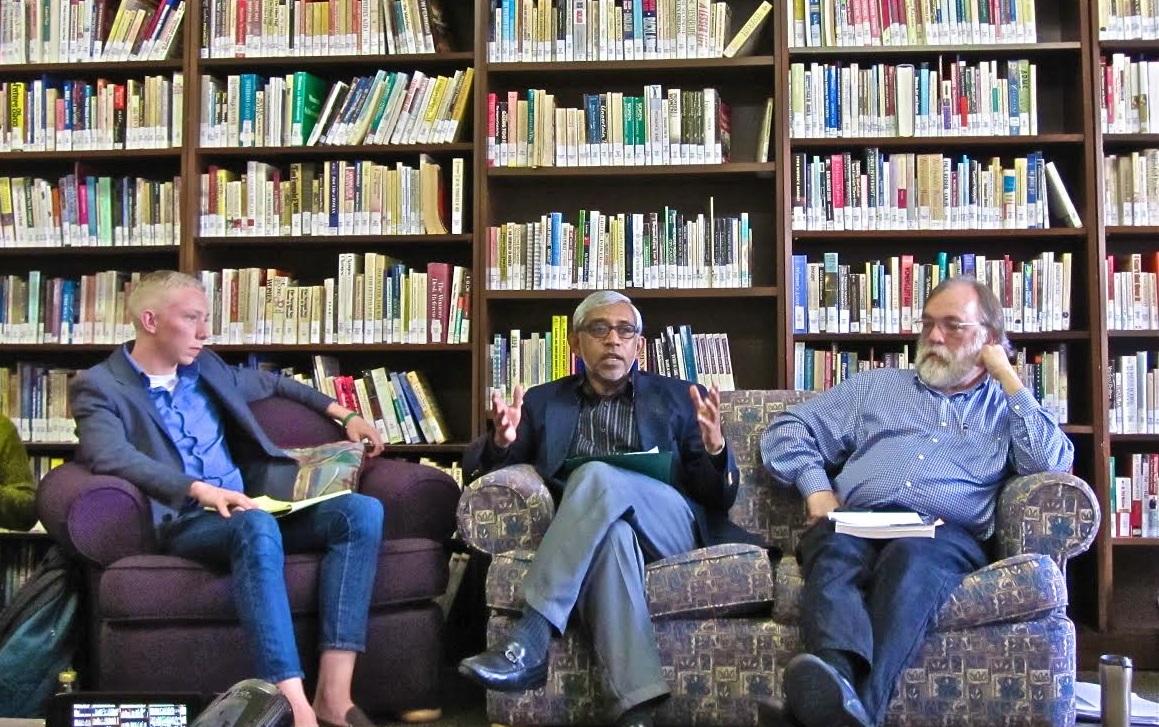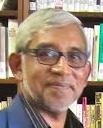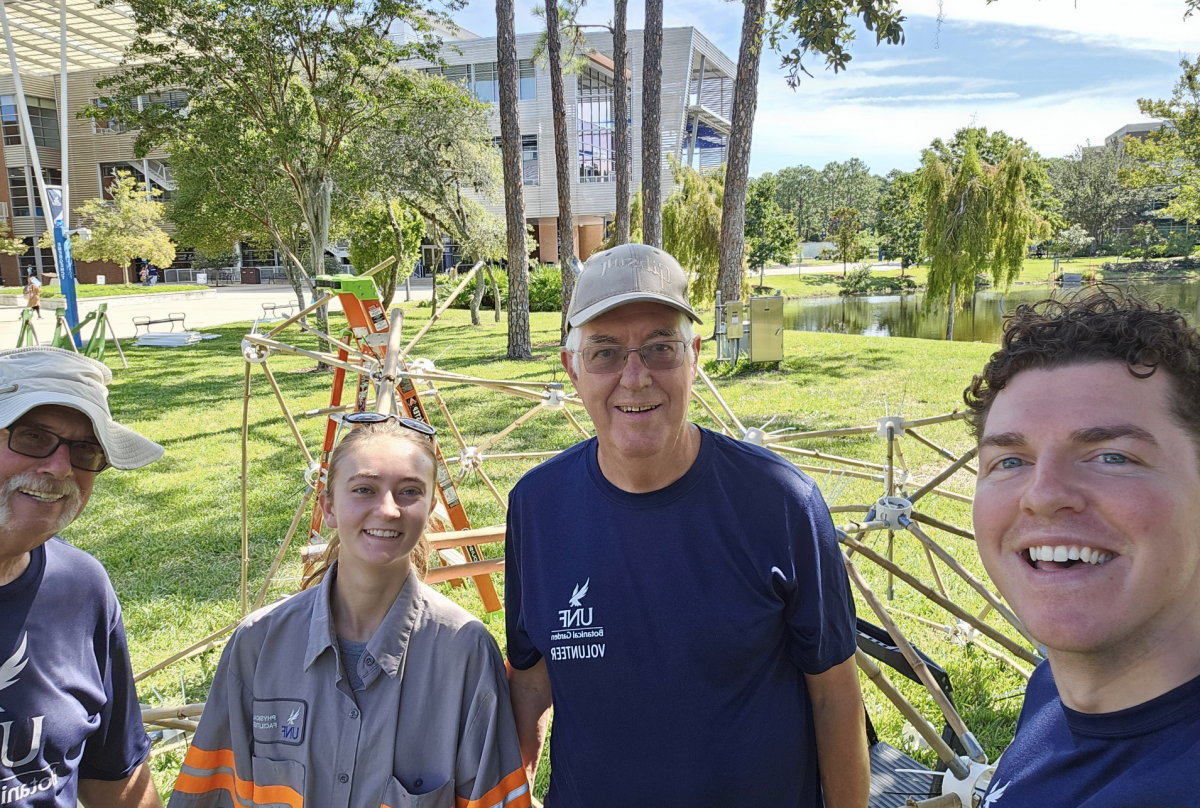
Photo by Tarah Trueblood
Two brothers, Saïd and Chérif Kouachi, broke into the offices of Charlie Hebdo, a satirical and secularist French magazine, Jan. 7 2015. The Kouachi brothers shot and killed 12 employees and injured 11 more. The gunmen belonged to the Islamist terrorist group Al-Qaeda, who claimed the motive to be a response to cartoon depictions of the prophet Muhammad.
Controversial topics like this are the breadth of discussion at UNF Interfaith Center’s recurring open forum “Coffee and Conversation.” On Wednesday, March 25, campus community members packed the Interfaith Center’s office for “Coffee and Difficult Conversation: Would Muhammad Approve his Cartoon? Where Free Speech, Satire & Religion Collide,” to explore distinct perspectives encompassing the Charlie Hebdo attack.
Two UNF associate professors, Dr. Parvez Ahmed and Dr. David Schwam-Baird facilitated the event. Each respectively brought both an Islamic and secular humanist perspective to the conversation about the subject.

Prof. Ahmed provided photographs of historical paintings of the Prophet Muhammad to the group to show how depictions of him are not inherently anti-Islamic. He said although he is not in favor of the restriction of free speech, he does see how it can be used to “further marginalize” certain groups.
Prof. Ahmed said the problem lies with defining what is acceptable.
“In many countries, there are laws against hate speech. This idea of free speech being completely free is not true at all.” Ahmed said. “It all gets subjected to the power structure at that time and who gets to enforce that power structure.”
Prof. Schwam-Baird said context is key in defining what is right. Although this cannot be left to any one individual, people themselves should be thoughtful in their actions.
“In terms of expression, there are obviously things that are going to be offensive to people. Part of the purpose of satire is to take figures of power down a peg or two,” Schwam-Baird said. “Sometimes civility is the right thing to do…Sometimes the most offensive thing is the thing to do.”
Despite coming from differing backgrounds, when speaking of terrorist retaliation, both professors acknowledged a distortion of the Qur’an is used in favor of a truer interpretation of the text. The question, “Would Muhammad approve?” needs not to be dignified with an answer.

Charles Hack organized the discussion and said the event was intended to be part of a “healing process for the aftermath” of Charlie Hebdo and “facilitate a dialogue that will inspire people across cultural beliefs.”
Next week’s “Coffee & Conversation” will be led by Cameron Garrett, who will start the discussion by addressing questions like “Who am I” and “What are my values” from both a spiritual and human perspective. UNF students and guests are welcome to join the conversation and drink free coffee next Wednesday, April 1 at the Interfaith Center in Founder’s Hall, suite 2100.
—
For more information or news tips, contact featureswriter@unfspinnaker.com; if you see an error in this story or have any compliments or concerns, contact features@unfspinnaker.com.







